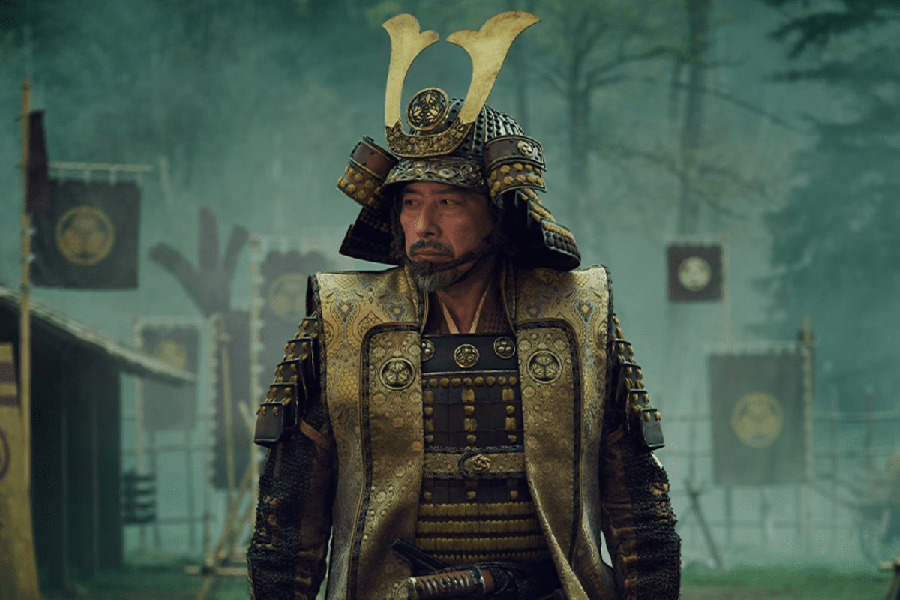During the era of “peak TV,” FX had a problem. A 2015 Variety report criticized FX for its lack of diversity in the director’s chair. In response, CEO John Landgraf adjusted the network’s efforts to represent women and people of color in their TV series. Soon after, “Atlanta” debuted on FX, earning its network 26 Emmy nominations and seven statuettes during its four-season run.
As the awards and viewers rolled in, FX quickly discovered the value of diverse storytelling. “Diversity is good business,” Landgraf said at a press event in 2020. Without this overdue course correction, FX would have never premiered “Shōgun,” a tour de force miniseries set in feudal Japan on Feb. 27.
“Shōgun” — a 10-episode limited series adapted from James Clavell’s 1975 novel of the same name — is a gripping historical epic that rivals “Game of Thrones” in its layered writing and brilliant performances. Loosely based on the rise of Japan’s Edo period in the early 17th Century, Clavell’s story folds elements from throughout Japan’s history into a gripping, emotional power struggle that creeps toward a stellar finale.
The political game at the center of “Shōgun” is controlled by warlord Yoshii Toranaga, played by a mesmerizing Hiroyuki Sanada. The series follows Toranaga — an ostracized member of Japan’s oligarchy — as he plots against his political enemies and pursues an “era of great peace” in Japan. Sanada’s gripping performance as Toranaga deserves a throne in the prestigious television hall of fame. His portrayal of the character is as cunning as Walter White, inscrutable as Logan Roy and honor-driven as Eddard Stark. He’s an all-time anti-hero, but make no mistake: he’s in control.
Toranaga’s story is told through the eyes of John Blackthorne (Cosmo Jarvis): an English seafarer modeled after William Adams, the first Englishman to land on Japan’s shores decades after Portuguese traders beat him to it. While fighting tooth and nail to survive in a foreign land, Blackthorne finds himself in Toranaga’s court and becomes a pawn in Toranaga’s great game.
However, John Blackthorne isn’t the only European in Japan. Unable to communicate, Blackthorne and Toranaga attempt to use catholic missionaries from Portugal as interpreters. When Blackthorne — a devout English Protestant — refuses to let Portuguese missionaries translate for him, his survival hinges on the company of Toda Mariko: a Catholic convert and the only polyglot in Toranaga’s inner circle.
Mariko’s character is brought to life by Anna Sawai, who becomes the heart of “Shōgun’s” bleak story. She plays her role with poise, strength and a ferocity that is vital to the show’s success. As Blackthorne’s translator, Mariko doesn’t just bridge the language gap between Blackthorne and Toranaga. She surreptitiously alters the words exchanged in each conversation to keep the two men from offending each other and to protect their allyship. Her subtle adjustments in translation add hair-raising tension and depth to every conversation, making her “Shōgun’s” greatest weapon.
Mariko keeps Blackthorne alive and slowly helps him adapt to his new life as a vassal of Toranaga. Blackthorne and Mariko’s relationship is a heartbreaking clash of cultures, emotions and devotions that allows the two actors to unleash gut-wrenching performances.
Anna Sawai is unparalleled in her ability to command a room. When Mariko is onscreen, it’s impossible to look anywhere else. She obliterates gender stereotypes and cements her place as the show’s most pivotal character. In the finale, Toranaga compares her strength and resolve to that of an entire army. In episode nine — “Crimson Sky” — Sawai gives the performance of a generation as she takes center stage in the story’s overwhelming climax.
Her display of emotion is rivaled only by Cosmo Jarvis, who brings dazzling humor and heart to the charismatic John Blackthorne. He delivers every line with a brilliant rhythm reminiscent of Tyrion Lannister or Hamlet. His quick wit is essential to his survival, but Jarvis abandons Blackthorne’s arrogance as his beautiful character arc comes into focus. In the series finale, kneeling before Toranaga atop a grassy hill, Jarvis delivers a heartbreaking scene that finally bridges the gap between Blackthorne and his newly adopted culture.
Watching Blackthorne learn the customs of Japan in “Shōgun’s” early episodes is a unique delight. He’s clumsy, unclean and unpolished. What starts as a comedy of errors comes to a poignant head in episode five when a rotting pheasant and a pair of katana become extraordinary symbols of Blackthorne’s effect on his new Japanese allies. Blackthorne’s arc is a beautiful take on the “stranger in a strange land” trope that represents Japanese culture with the utmost respect.
“Shōgun’s” dedication to historical and cultural accuracy shines through in every episode. Names from Clavell’s novel are changed to maintain period accuracy — the modern-sounding name Yabu becomes Yabushige, a conniving lord played to perfection by Tadanobu Asano. The show’s website serves as an encyclopedia of Japanese history and additional context from Clavell’s novel. “Shōgun’s” social media accounts post explanations about Japanese traditions depicted in the show (most notably, the act of seppuku, which is a vital element in the show’s narrative).
“Shōgun” leaves nothing on the table. The cast, crew and writers gave this show everything they had, and their devotion to Clavell’s story can be felt through the screen. The show devotes most of its runtime to character moments and trickery, rather than sweeping action setpieces, and for good reason. “Shōgun” was never about a bloody war or a mighty battle. It’s about culture, faith and devotion. Toranaga, Mariko and Blackthorne are the latest in a collection of TV’s greatest characters, and “Shōgun” has earned its spot as FX’s crown jewel. The principal cast better have their acceptance speeches ready when awards season rolls around.















